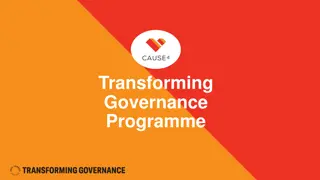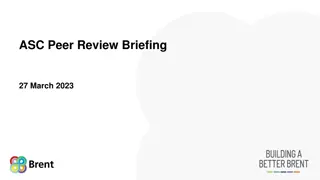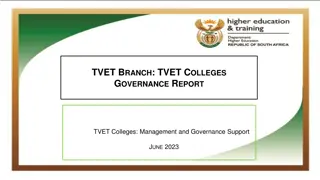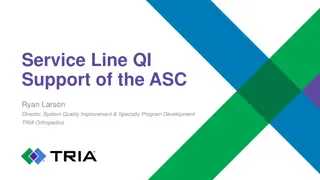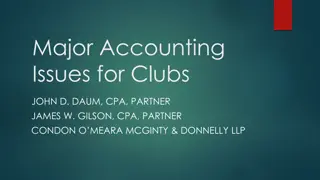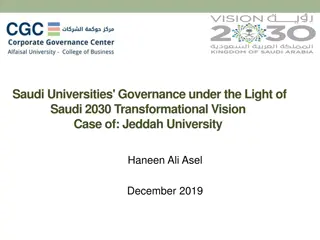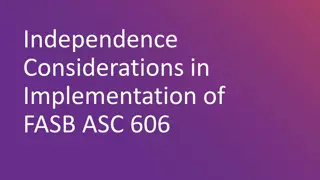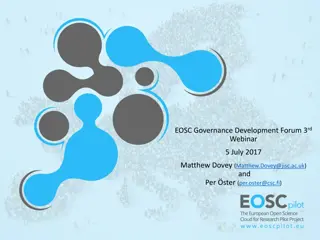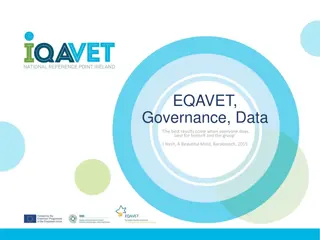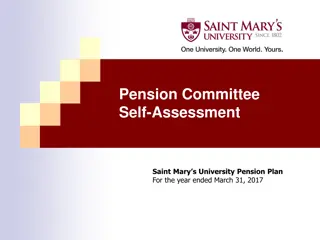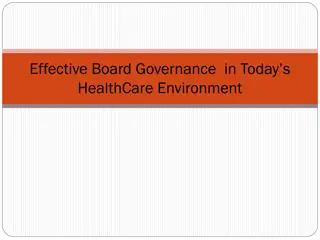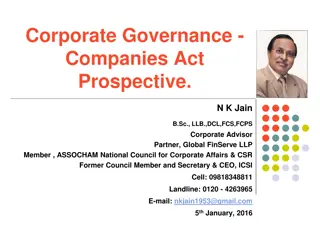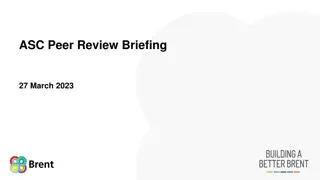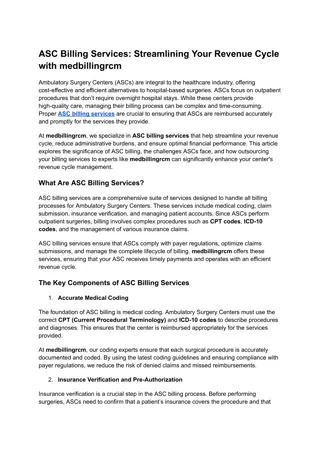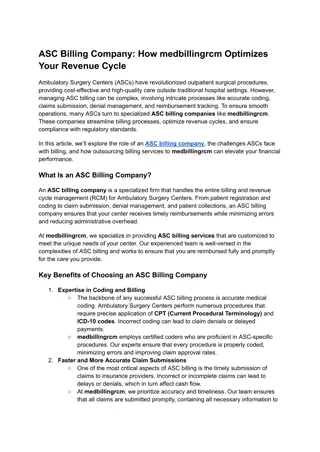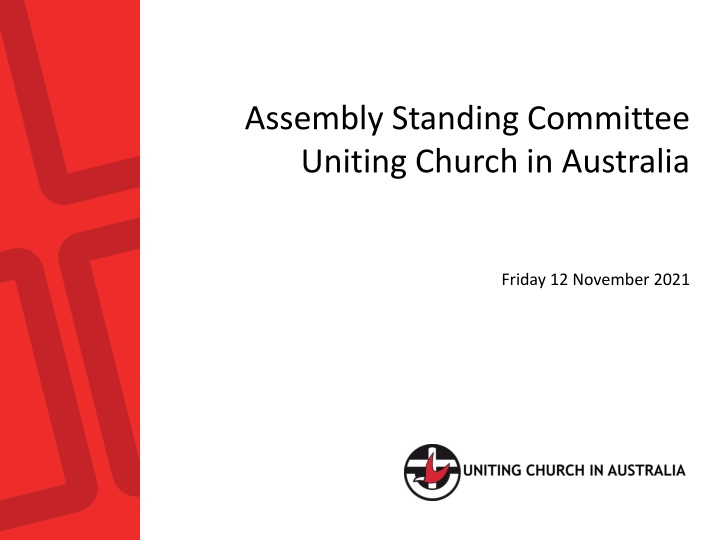
Governance in the Uniting Church: A Comprehensive Overview
Explore the concept of governance in the Uniting Church in Australia and society's expectations, focusing on leadership, oversight, corporate governance, accountability, and risk management. Discover how the church's governance framework maintains its mission and ecclesiastical life while balancing legal responsibilities.
Download Presentation

Please find below an Image/Link to download the presentation.
The content on the website is provided AS IS for your information and personal use only. It may not be sold, licensed, or shared on other websites without obtaining consent from the author. If you encounter any issues during the download, it is possible that the publisher has removed the file from their server.
You are allowed to download the files provided on this website for personal or commercial use, subject to the condition that they are used lawfully. All files are the property of their respective owners.
The content on the website is provided AS IS for your information and personal use only. It may not be sold, licensed, or shared on other websites without obtaining consent from the author.
E N D
Presentation Transcript
Assembly Standing Committee Uniting Church in Australia Friday 12 November 2021
What is Governance? To Guide and Steer the ship from a position of authority. To ensure safe passage for the organisation. Good governance is about the helicopter view. Scanning the horizon for opportunities and risks. It is not about day to day management. Governance is how the objectives of the organisation are set and achieved, how risk is monitored and assessed, and how performance is optimised.
What is Governance? The church has its own governance framework in order to maintain the church s polity and the mission and ecclesiastical life of the church Church governance needs to be held in balance with society s expectation of the church as an organization that has corporate and legal responsibilities to its members, staff, funders and the communities it engages with
Governance in Church and Societys Expectations Church leadership & oversight Vision and missional objectives of the church Corporate Governance Setting & monitoring strategic direction of the entity Accountable to its members as laid out in the Constitution Oversight of the Church Regulations and Constitution Accountable to Basis of Union and Assembly and Uniting Church ethos and beliefs Cultivating initiative, innovation and creativity as a church Accountable to Australian law and the ACNC s Governance Standards Risk management and compliance in relation to contracts and obligations with clients, members, grantors and contractors, employees, suppliers, etc.
Do we risk being too corporate? Governance is in the DNA of UCA In many aspects of contemporary corporate governance life, UCA when established and through its distinct decisionmaking process articulated through the Manual for Meetings was ahead of its time Key concepts have subsequently been adopted in our society
Basis of Union 15. Government (governance) in the Church The Uniting Church recognizes that responsibility for government (governance) in the Church belongs to the people of God by virtue of the gifts and tasks which God has laid upon them. The Uniting Church therefore so organizes its life that locally, regionally and nationally government (governance) will be entrusted to representatives, men and women, bearing the gifts and graces with which God has endowed them for the building up of the Church. The Uniting Church is governed by a series of inter-related councils, each of which has its tasks and responsibilities in relation both to the Church and the world.
Manual for Meetings Extract from the Introduction The Manual is a very important development in the life of the Uniting Church. The Uniting Church believes that we hear the voice of God in the councils of the church. Church meetings that encourage community and listening to one another in a spirit of openness and humility are more likely to discern the will of God. It is the hope and expectation of the Assembly that the process present in the Manual will enable us to give expression to Christian community as we work together.
What are the gifts in our governance? Recognition of diversity in leadership Ordained and lay Importance of gender balance Rich insights of cultural perspectives Consensus decision making Our preparedness to listen to the still small voice
Good governance in practice Good governance is founded on good decision-making Process Decision making culture Good decision-making comes from good information Transparency Executive capacity Good communication
Good governance in practice In our inter-related council model and Assembly s distributed leadership - understanding the role, responsibilities and accountabilities of each part is critical to: Minimise overlaps Avoid gaps
Pause for questions comments insights?
ASC Responsibilities
ASC Responsibilities Oversight as National Council of UCA Governance of the organisation
ASC Responsibilities Oversight as National Council of UCA Governanceof t he organisation Approve& monitor finances Set and monitor strategy Monitor compliance Monitorrisk
Assembly Organisation Chart Assembly Audit Finance and Risk Committee (AFARC) UCA Assembly Limited ABN 14 000 007 447 Registered with ACNC Assembly Assembly Investment Advisory Committee Mercer Superannuation Trust (Reports to Assembly and ASC) Assembly Standing Committee (ASC) ABN 16 939 630 947 Registered with ACNC Assembly Legal Reference Committee National Disaster Relief Fund Church Polity Reference Committee Uniting Aboriginal and Islander Christian Congress Under the Assembly ABN Standards for Ministries Committee Remote Area Ministry Working Group Secretariat Frontier Services (Reports to Frontier Services Board) ABN 77 231 384 646 Registered with ACNC UnitingWorld (Reports to UnitingWorld Board) ABN 47 817 183 926 Registered with ACNC UnitingCare Australia (Reports to UnitingCare Australia Board) Under the Assembly ABN Defence Force Chaplaincy Uniting Church National History Society Uniting Church Adult Fellowship UCA Redress Limited ABN 628 672 597 Registered with ACNC National Safe Church Unit Assembly Resourcing Unit (National Conferences, Justice, Ecumenical, Interfaith) Assembly Services Unit (Finance, Admin and Communications) Offices of President and General Secretary Key: UAICC has a Covenant relationship with the Assembly. It reports to the Assembly and advises / supports the Assembly on relevant matters. Reports Notes: The Assembly Standing Committee (ASC) has a remit of delegations, mandates and governance arrangements to Agencies (UnitingCare Australia, Frontier Services and UnitingWorld). Agencies and Units : Have various boards, committees and reference groups Have advisory and specialist functions and report to the Assembly and ASC Management accountabilities and reporting are not included in this chart. Further information about Agencies and Units, the Assembly and the ASC can be found at www.uniting.church Advise / support the work of ASC ASC delegation to Boards Report to Assembly and ASC along with Synods in shared governance model Mercer Superannuation Trust (Formerly Beneficiary Fund)
Good governance in practice When do I approve the finances & how do I monitor finances? How do I monitor compliance? How do I monitor risk? How do I set and monitorstrategy? Good governance is founded on good decision-making. Good decision-making comes from good information.
Good governance in practice using finance and financial risk as a lense What are the decisions I should be making? What information do I need? How will I receive the information? When will I receive information and make decisions? Who will provide the information?
What decisions will I need to make? Approving or not approving budgets that ensure the financial wellbeing of the organisation Accepting or challenging financial reports against budget that ensure the financial wellbeing of the organisation Accepting or not accepting reports that assure me the risks of the organisation have been identified and are being managed Accepting or not accepting reports that assure me the compliance obligations of the organisation are being met
What information do I need? Is the organisation financially performing against budget? Is the organisation trading solvent? Is the organisation a going concern? What are the risks to the organisation? How are these risks being managed? Are there any risks being realised? If yes, what are we doing? What are the compliance and legal obligations of the organisation? Are we meeting these compliance and legal obligations?
Why are these concepts important? Trading Insolvent or Going Concern Test is where the organization cannot pay its debts as and when they fall due Cash flow is an important issue to demonstrate solvency or: Access to reliable funding from a third party Access to line of credit Assets available for sale quickly Consequences? Individual governing members can be personally liable for debts incurred while trading insolvent When does it need to be considered? All the time Particularly at end of year adoption of financial accounts and declarations made
How will I receive this information? Written reports with recommendations Verbal reports with recommendations Summary information so I can absorb the information Plain English so I can understand the information Access to Committee/Agency/Board representatives who hold delegations to explain or elaborate Access to Executive Officers who hold delegations to explain or elaborate
Who will provide the information? Committee/Agency/Board representatives who hold delegations Executive Officers who hold delegations Audit Finance and Risk Committee Directors of UCA Assembly Ltd Access to the External Auditor
How often will I receive information and make decisions? At every meeting of the ASC (3 times a year) Annually at ASC
Some risks to good decision-making 1. The General Secretary and management do not understand/respect the role of the Assembly Standing Committee 2. A dominating President or General Secretary or the relationship between them are too close 3. New ASC members are too timid 4. Heroic work ethic by management team 5. Failure in communicating key risks and regulatory exposures within one of the reporting agencies 6. ASC follows habit and doesn t ask the right questions Want too much operational detail at risk of paying attention to the big issues
Enabling good decision-making Important rather than urgent Something you can do something about A major issue if you don t do anything about it Focused on the church or at least a program
Thinking strategically at ASC meetings Start with the important thinking it through stuff while people are fresh and both physically and mentally present Thinking about the agenda in order of priority: 1. For decision 2. For action 3. For information
Pause for questions comments insights?
Confidentiality is important because Encourages open and frank discussion Supports ASC s effectiveness in achieving its mission and purpose Protects information that is personal, private or relates to employment, commercial of legal matters
Confidentiality is important because Assembly has a policy that applies to ASC members to assist their approach What must be kept confidential? Board papers and their contents Communication of decisions or anything said by other members during discussions or deliberations Exceptions: The extent to which the decision has been formally communicated Consent or approval has been given (by ASC as a whole or through the General Secretary)
Confidentiality is important because When must confidentiality be kept? Both during meetings and outside of meetings Information coming to a member through their role as ASC member cannot be used: For personal gain To cause detriment (financial or non-financial) to the organization (Church / Assembly)
Definition of Conflict of Interest Where the personal interests of an individual or group of individuals directly conflicts with the best interests of the ASC and the people that it represents. Or where the decisions or actions of individuals may be influenced by their personal interests rather than those of the ASC.
The importance of perception In general, a conflict of interest can be said to arise if: It is likely that the performance of a person s duties as an ASC member could be prejudicially influenced by that person s other interests (private, personal or professional), or that a reasonable person would believe that the person could be so influenced; or If a person s participation in the ASC could be prejudicially influenced by the interests of the role or roles the person carries out, or that a reasonable person would believe that the person could be so influenced.
Examples of potential conflicts of interest Situations in which: close personal friends or family members are involved in decisions about employment, projects, and the awarding of contracts an individual or their close friends or family members may make a financial gain or gain some other form of advantage an individual is involved with another organisation and therefore may have access to commercially sensitive information, plans or financial information
Why breaches of confidentiality and conflicts of interest matter A breach of confidentiality or conflict of interest can significantly undermine the authority of the ASC It can undermine the integrity and authority of the decision- making of the ASC, not just in relation to the individual who breached confidentiality or for whomthe potential COI exists, but for the whole Council. This is true of both actual conflicts of interest and perceived conflicts of interest.
Confidentiality: Have you experienced a situation where confidentiality has been breached? What was the consequence? In Table Groups Conflict of interest: Have you been in a meeting where you have felt you had a conflict of interest in relation to an agenda item? Or observed another person with a conflict of interest? What was done to manage the conflict of interest?
In Table Groups Reporting back: What are the likely areas or issues that might give rise to confidentiality being breached arising from ASC s business? What insights have you gained about managing conflicts of interest in the ASC context?
Reporting back Capturing insights into managing confidentiality and conflicts of interest in ASC context Next steps in governance (General Secretary)

